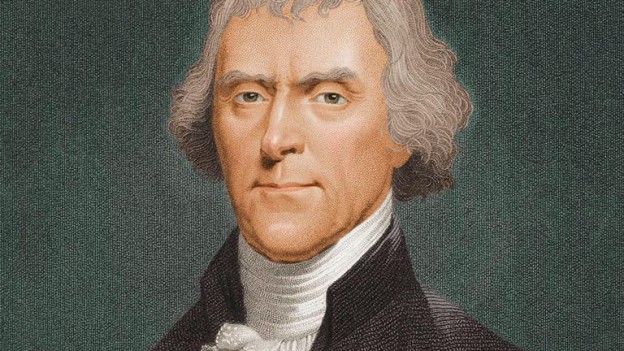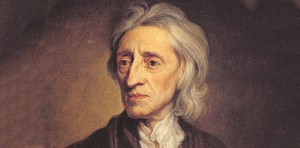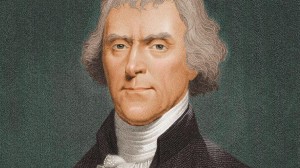
The Separation of Church & State – A Brief History
November 25, 2014Where did this concept come from?
Today, what has become known as the “Separation of Church and State” has evolved into something that I believe was not its original intention, if “it” is even a thing. A search into history shows that what’s regarded today with such generality and certainty, many times even driving policy and legislation, has likely been misinterpreted and fumbled by current purveyors of the law.
Luther & Locke
There are traces of ‘separation of church and state’ rhetoric in the writings of both Martin Luther and John Locke, the protestant reformist and British philosopher, respectively. Both leaders, seeing religious disdain and persecution in their own countries, supported a form of religious tolerance.

Locke put it this way:
“Earthly judges, the state in particular, and human beings generally, cannot dependably evaluate the truth-claims of religious standpoints.” – Letters Concerning Toleration (1689-92)
In Locke’s same series, he inserts that “coercing religious uniformity would lead to more social disorder than allowing diversity.” Locke, the father of ‘classical liberalism,’ which in many ways translates to modern day libertarianism, has plenty to say about the “state” not residing over church doctrine and “religious standpoints” for the good of the people being governed. So Locke, certainly ahead of his time, implies two very important points concerning both faith and politics.
1. Freedom to choose or adopt one’s own brand or denomination of Christianity, or even one’s own other religion or lack thereof is an unavoidably Christian ideal.
2. The enforcement or reinforcement of any of these faith-based “truth-claims” are not the role of the Government, but rather the Church.
The context: It’s important to understand the context with which Locke and Luther came to their understanding of a ‘separation’ between the church and the state. Both men were witnessing intense laws, regulations, and persecution directed toward constituents not conforming to the state’s method for religion. It’s vital also to understand that the debate has mutated over the centuries and to keep in mind that Luther, Locke and then Jefferson were a. Christians, and b. were observing in their own nation as well as others, the integrity of their Christian religions being compromised by the state; a panorama completely different than what we see in America today. It’s probably also prudent to make mention that what Locke perceived as ‘tolerance,’ when he used the term in the late 1600’s, is surely not the liberty-snatching, special interest driven, gilded “tolerance” that we see peddled today. Comparing these two means for equality and justice in my view would be irresponsible.
Thomas Jefferson
The actual terminology of ‘The Separation of Church and State’ comes from a letter penned by Thomas Jefferson to the Danbury Baptist Association in 1802 where he describes a “wall of separation between church and state.”
“Believing with you that religion is a matter which lies solely between Man & his God, that he owes account to none other for his faith or his worship, that the legitimate powers of government reach actions only, & not opinions, I contemplate with sovereign reverence that act of the whole American people which declared that their legislature should ‘make no law respecting an establishment of religion, or prohibiting the free exercise thereof,’ thus building a wall of separation between Church and State.” – Thomas Jefferson
What Jefferson Intended
It’s my fear that these hallowed words [above] from one of our republic’s founders are being badly distorted. Jefferson’s point, I believe, was not that the Almighty should cede His role in guiding the path of a country, but rather that the Government system was not to assume for itself, through law or opinion, that it was representing God for all of the governed. The very famous phrase, which also appears in our Bill of Rights, expresses that the government “shall make no law respecting an establishment of religion, or prohibiting the free exercise thereof.” Here is where I think we’ve gone awry with the concept of separating church and state. We’ve in effect pressed this envelope so far, reacted in a way so extreme that we’re actually abolishing the second piece of Jefferson’s statement: prohibiting the free exercise thereof – in other words, we’ve reached a point where we’re not ensuring the free exercise of one’s religion, namely Christianity…

What it has become today
Believe it or not, this phrase (the Separation of Church and State) is actually being leveraged today to censor praying, faith-filled people. Todd Starnes, a watchdog of sorts for government overreach in the realm of religious liberty recently wrote a column detailing this very fact. So here is yet another case study of something that was intended to ensure liberty (from one of the architects of our free republic) being completely misconstrued, to the effect that it’s achieving exactly what it was brought about to limit. Starnes, who finds plenty of fresh material to write about, has identified a trend of tyranny set against people not just of faith, but of Christian faith. The student in Starnes’ story (along with all of the other students at his Colorado High School), have been ordered by way of the school district to cease praying or singing religious songs during school hours. Really? Is this what Jefferson intended? How about Luther or Locke?
The Bible instructs us to pray without ceasing, but it does not mention pausing or breaking this continual line of prayer for school or any other system or environment that our government oversees.
Is there a double standard here?
This isn’t a matter of the “evangelical far right” imposing its will or groundlessly raising a fuss, this is quite simply a matter of persecution. The cunning arguments that dissuade and explain away the style of religious persecution occurring in our country right now are losing their gusto. [We] aren’t extremists and I certainly don’t think we’re the minority either. We want freedom, as a people should who reside in a republic founded under God. In fact, the first amendment to our nation’s Constitution guarantees this. This constitutional clause, as most sensible people see it, applies to an entire gamut of beliefs. Our nation was undoubtedly founded as a Christian nation, but this safeguard was established by Jefferson and his allies to take the role of religious judgment and deliberation away from government. The ambition of religious liberty becomes a problem when one group or belief is singled out or excluded from the freedoms that any of the others enjoy. It may be time, whether you’re a Christian or not, to see for yourself if this is happening in America.
“Blessed are those who are persecuted because of righteousness,
for theirs is the kingdom of heaven.” – MATTHEW 5:10 (NIV)
I believe that we are in fact in a season of persecution as the American church and it’s important that we’re unified in this. We must also make sure that if we are persecuted, it’s for righteousness’ sake (and not some other reason). And do remember that as a Christian we’re redeemed from many things, like sin and disobedience, but we cannot be redeemed from persecution. We can, however, be blessed.
 Joe D’Orsie – Communications & Spiritual Life Counsel jdorsie@livewithpurposecoaching.com
Joe D’Orsie – Communications & Spiritual Life Counsel jdorsie@livewithpurposecoaching.com